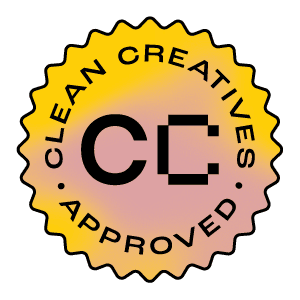New Ecograder Update Released
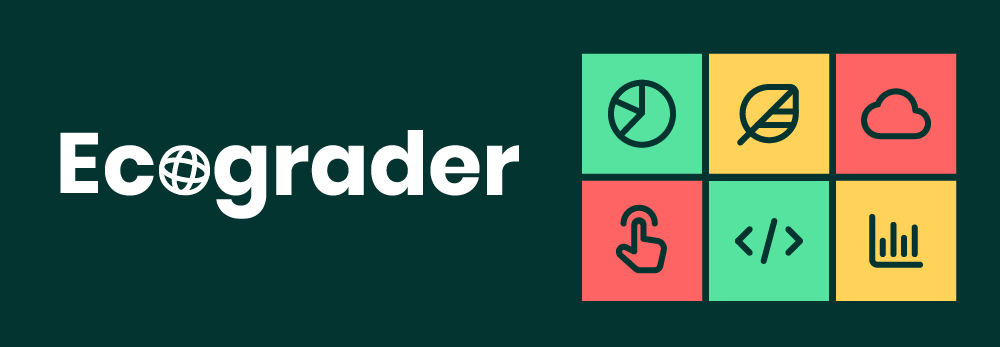
Mightybytes just released another update to our free web sustainability tool, Ecograder, our second this year. Here’s what you can find in the new version.
As collective awareness of digital emissions and digital sustainability broadens, we need educational resources, tools, and standards, plus an army of dedicated digital professionals committed to key principles as outlined in:
- The Sustainable Web Manifesto
- U.N. Environment Programme’s CODES Action Plan
- The International CDR Manifesto
Digital can play an important role in designing a better, more sustainable and equitable future, but only if we use it the right way. Our tool Ecograder is designed to help with one common component of the resources listed above: reducing the internet’s significant environmental impact.
Here’s how the new Ecograder update makes that easier.
Ecograder 2022: Easier to Use and More Actionable
The first version of Ecograder, launched in 2013, didn’t have any admin or data sorting capabilities. This made it difficult to collect or analyze data on internet sustainability trends. It also made the tool unwieldy to manage and challenging to update. Plus, reports were simple and barely actionable. Over time, they became dated as well.
With our Earth Day 2022 release, we changed all that. Improved admin and measurement tools make Ecograder a better website carbon emissions reduction tool. Editable metrics, submetrics, and action text, plus a fully customizable scoring system, allow us to make updates on the fly and reweight the algorithm as we learn new things. This makes it easier for users to improve the environmental impact of their digital products and services over time.
With this release, we not only improved on the Earth Day ‘22 release, but also made significant improvements both under the hood and in the user interface. Let’s take a look.
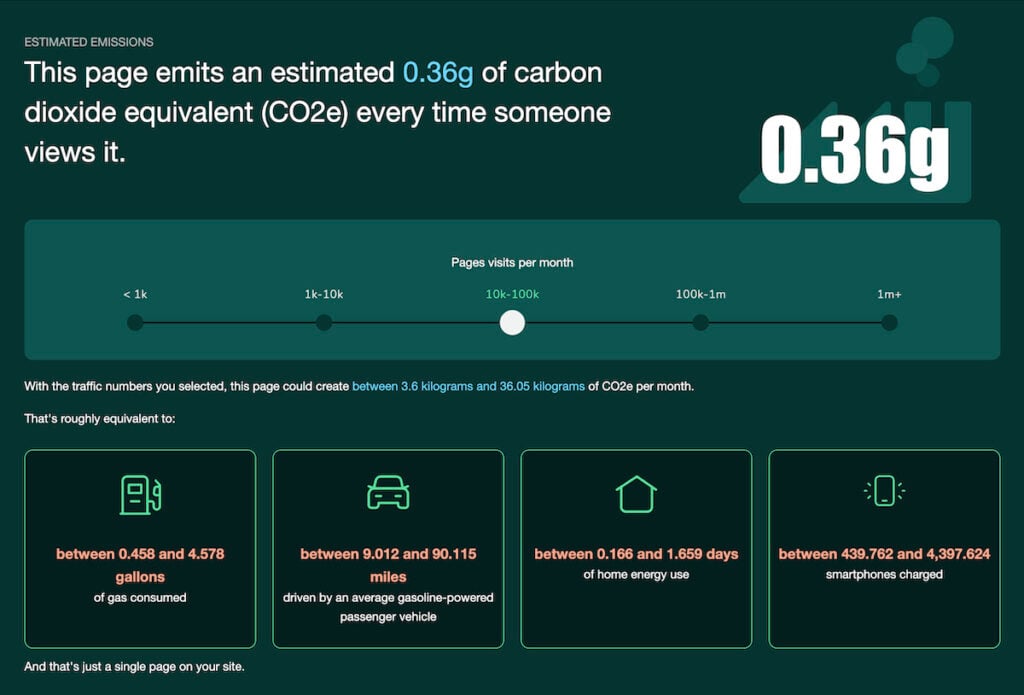
New Interface and Features
Ecograder’s interface now features a better visual hierarchy that is easier to understand. New icons help users better visualize metrics and navigate reports. Plus, we added more emissions equivalency examples to help you better understand the potential environmental impact of your digital product or service.
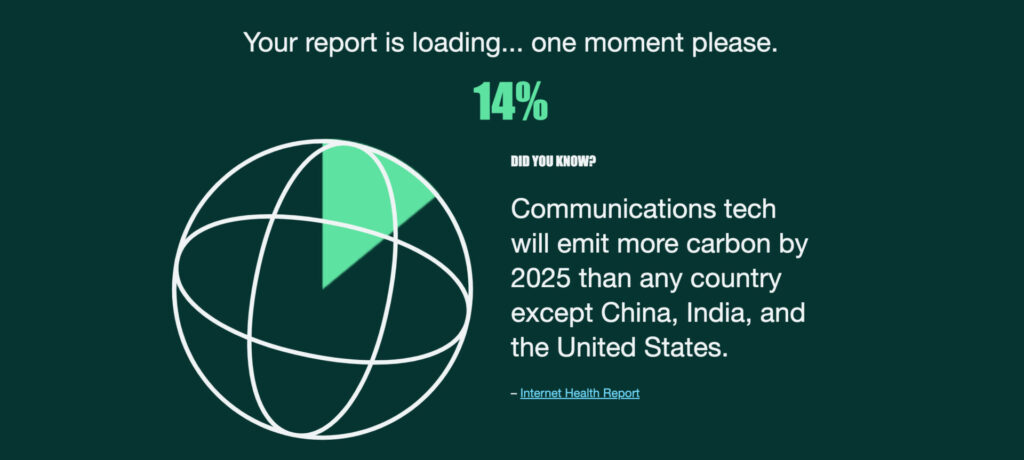
Other interface improvements include better sharing capabilities, revised action text, and more actionable metrics. Plus, this version’s dark interface reduces electricity consumption.
Updated Algorithm
We also updated the scoring algorithm to provide more actionable insights, including:
New Metrics
A handful of new metrics increases the number of opportunities to improve your page.
We also merged page performance and user experience categories in Ecograder’s scoring. Everything now lives under User Experience.
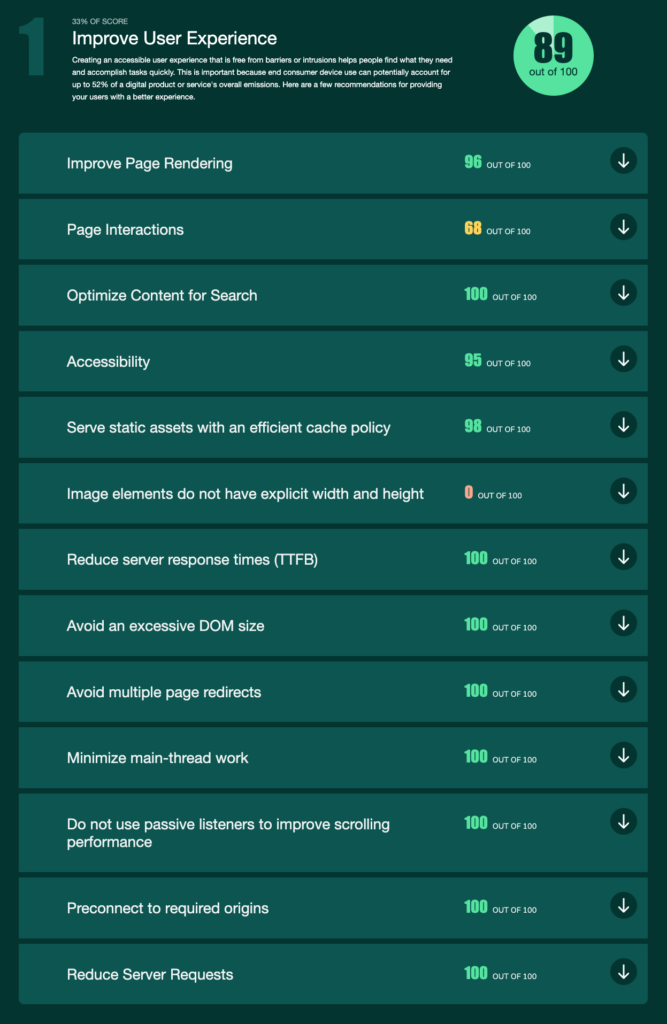
Reweighted Scoring
We reweighted some of the metrics, so that they more accurately reflect impact on a page’s emissions.
Some users may see a drop in their Ecograder score due to this. However, with the addition of more actionable insights, we hope you can more easily find a clear path to improving your pages.
Rebuilt Back-End
Next, we restructured Ecograder’s database and how it tallies and stores information. Here’s what this means for users.
Improved Efficiency
We rebuilt the back-end to store data and load reports more efficiently, using less energy (and offering less wait time). We also created a simple, lightweight CMS to manage content pages.
Efficient Scalability
The rebuilt back-end allows us to efficiently manage Ecograder reporting, part of a more sustainable data strategy. A new reporting dashboard enables us to sort aggregated Ecograder data in a variety of ways, including:
- Lowest Ecograder scores
- Highest Ecograder scores
- By metric
- By C02 estimates
Also, long-term data are now stored as flat files. This allows us to leverage the most efficient, sustainable storage methods. Analytical traffic data is handled locally on the web server, reducing overhead traffic from visits.
Over time, this will help us more efficiently collect, manage, and analyze Ecograder data, which can be used for aggregate reporting.
Crawl Multiple URLs
In addition, Ecograder admins can run a single, shareable report on multiple URLs to display collective stats and help quickly identify a site’s greatest improvement opportunities.
This is a feature that we’re working to refine before making it publicly available in early 2023. We’ll be looking for beta testers, so stay tuned if that is something that interests you.
Next Steps for Ecograder
Our goal has always been to make Ecograder a critical website performance and emissions management tool for organizations of any size. Growing interest in digital sustainability inspired us to rethink the value a tool like Ecograder might provide to impact-focused organizations and digital professionals who want to make a difference in their work.
Mightybytes has always been committed to sustainability and creating public benefit through our work. Ecograder is just one tool that helps us put our philosophy that supports people, planet, and shared prosperity into practice.
We hope you’ll give the new version a try and take steps to reduce your site’s energy consumption, joining us in addressing our global climate crisis. If you’d like to learn more about how to reach your organization’s impact goals, contact us today.
Digital Carbon Ratings, now in Ecograder.
Understand how your website stacks up against industry carbon averages with this new feature.
Try Ecograder

